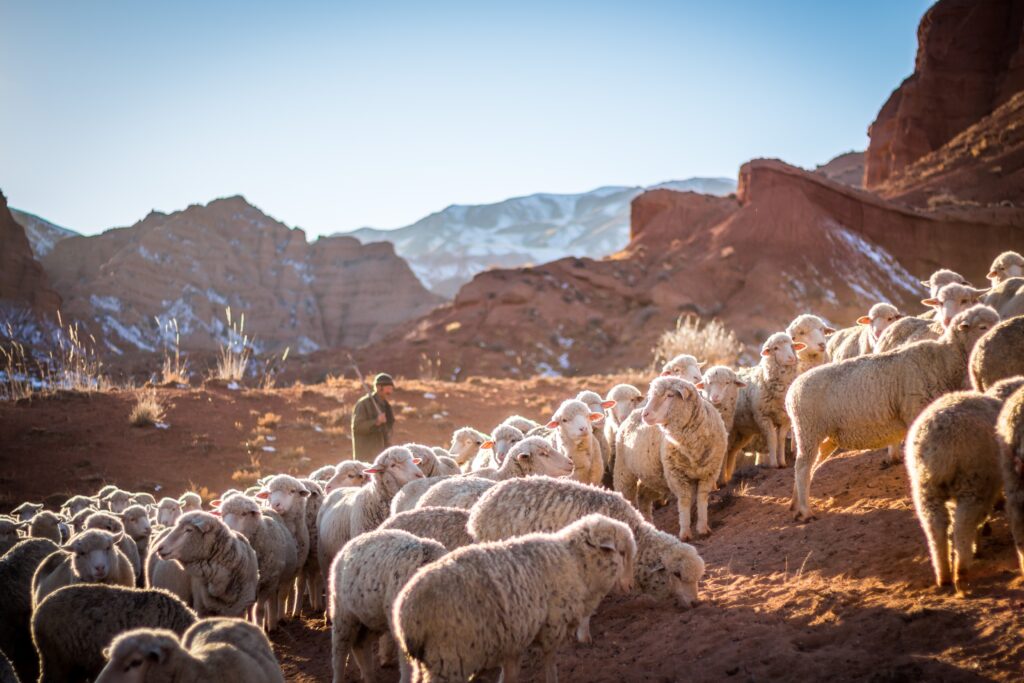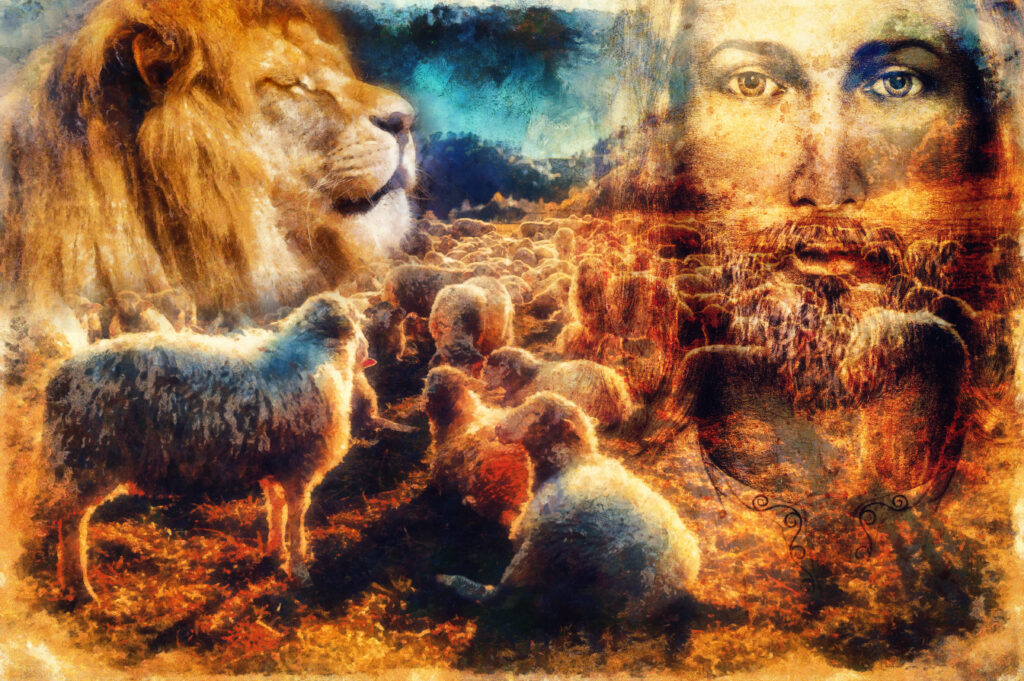Psalm 23
1 The Lord is my shepherd, I lack nothing.
2 He makes me lie down in green pastures, he leads me beside quiet waters,
3 he refreshes my soul. He guides me along the right paths for his name’s sake.
4 Even though I walk through the darkest valley, I will fear no evil, for you are with me; your rod and your staff, they comfort me.
5 You prepare a table before me in the presence of my enemies. You anoint my head with oil; my cup overflows.
6 Surely your goodness and love will follow me all the days of my life, and I will dwell in the house of the LORD forever.
QUESTION:
Psalm 23: "What does it mean that the Lord is my Shepherd?"

Jesus declared that He is our Shepherd and demonstrated it by giving His life for us. “The Son of Man did not come to be served, but to serve, and to give His life a ransom for many” (Matthew 20:28). Through His willing sacrifice, the Lord made salvation possible for all who come to Him in faith (John 3:16). In proclaiming that He is the good shepherd, Jesus speaks of “laying down” His life for His sheep (John 10:15, 17-18).
Like sheep, we, too, need a shepherd. Men are spiritually blind and lost in their sin. This is why Jesus spoke of the parable of the lost sheep (Luke 15:4-6). He is the Good Shepherd who laid down His life for us. He searches for us when we’re lost, to save us and to show us the way to eternal life (Luke 19:10). We tend to be like sheep, consumed with worry and fear, following after one another. By not following or listening to the Shepherd’s voice (John 10:27), we can be easily led astray by others to our own destruction. Jesus, the Good Shepherd, warns those who do not believe and listen to Him: “I did tell you, but you do not believe . . . you do not believe because you are not my sheep. My sheep listen to my voice; I know them, and they follow me. I give them eternal life, and they shall never perish; no one can snatch them out of my hand” (John 10:25-28).
Psalm 23:1-3 tells us that the shepherd meets the sheep’s every need: food, water, rest, safety, and direction. When we as believers follow our Shepherd, we, too, know that we will have all we need. We will not lack the necessities of life, for He knows exactly what we need (Luke 12:22-30).
Sheep will not lie down when they are hungry, nor will they drink from fast-flowing streams. Sometimes the shepherd will temporarily dam up a stream so the sheep can quench their thirst. Psalm 23:2 speaks of leading the sheep “beside the quiet [stilled] waters.” The shepherd must lead his sheep because they cannot be driven. Instead, the sheep hear the voice of their shepherd and follow him—just as we listen to our Shepherd, Jesus Christ—in His Word and follow Him (John 10:3-5, 16, 27). And if a sheep does wander off, the shepherd will leave the flock in charge of his helpers and search for the lost animal (Matthew 9:36; 18:12-14; Luke 15:3-7).
In Psalm 23:3, the Hebrew word translated “paths” means “well-worn paths or ruts.” In other words, when sheep wander onto a new path, they start to explore it, which invariably leads them into trouble. This passage is closely akin to the warning in Hebrews 13:9: “Do not be carried away by all kinds of strange teachings.” The apostle Paul also alludes to this idea in Ephesians 4:14.
Finally, the shepherd cares for the sheep because he loves them and wants to maintain his own good reputation as a faithful shepherd. As we’ve seen in Psalm 23, the analogy of the Lord as the Good Shepherd was also applied by Jesus in John chapter 10. In declaring that He is the shepherd of the sheep, Jesus is confirming that He is God. The Eternal God is our Shepherd. And we would not want it any other way.
Source: www.GotQuestions.org

